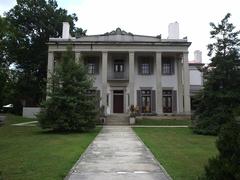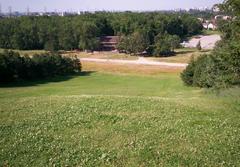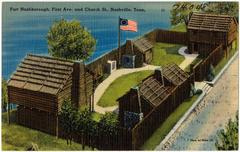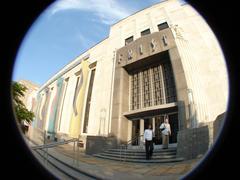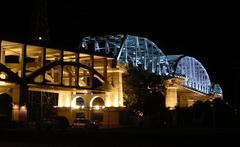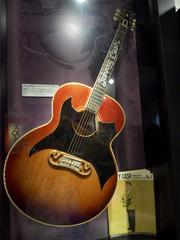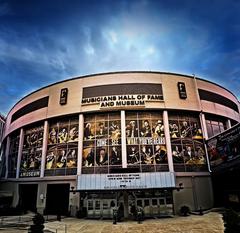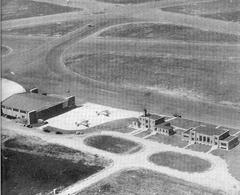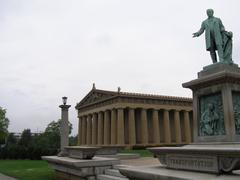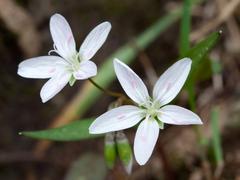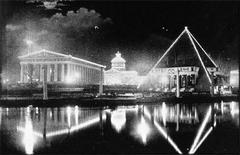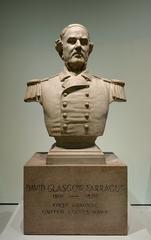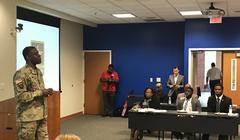
Scarritt College For Christian Workers
Scarritt College for Christian Workers Visiting Guide: Nashville Historical Site Tickets and Hours
Date: 04/07/2025
Introduction: Why Visit Scarritt College for Christian Workers?
In the heart of Nashville, Tennessee, the former Scarritt College for Christian Workers—now the Scarritt Bennett Center—stands as a living testament to progressive education, social justice, and spiritual development. Originally founded in 1892 as the Scarritt Bible and Training School in Kansas City, Missouri, the college was a pioneer in empowering women for leadership in Christian ministry during an era when such opportunities were rare. Its move to Nashville in 1924 brought architectural grandeur and a deepened commitment to social change, establishing Scarritt as a key historical and cultural landmark (Scarritt Bennett Center; Tennessee Encyclopedia).
Scarritt College holds a significant place in civil rights history, being the first white private college in Tennessee to admit Black students in 1952. Its students, faculty, and alumni played important roles in the civil rights movement, hosting figures like Dr. Martin Luther King Jr. and organizing protests against segregation (ResourceUMC; Historic Nashville). Today, the Scarritt Bennett Center continues this legacy, offering a welcoming space for retreats, conferences, and community events. Whether you are a history buff, a civil rights scholar, or a traveler seeking to experience Nashville’s rich heritage, this guide provides the details you need for your visit, including hours, ticketing, accessibility, and nearby attractions (Scarritt Bennett Center; United Women in Faith).
Historical Overview
Early Years and Progressive Mission (1892–1924)
Scarritt began in Kansas City as a training school for Methodist women missionaries, led by Belle Harris Bennett, a suffragist and advocate for racial justice (Scarritt Bennett Center; ResourceUMC). The curriculum emphasized language skills, cultural studies, and theological training, breaking new ground for women’s education in the church.
Move to Nashville and Architectural Flourishing (1924–1928)
In 1924, the college relocated to Nashville for greater influence and collaboration with local educational institutions. Architect Henry C. Hibbs designed the Collegiate Gothic campus using Tennessee Crab Orchard stone and Indiana limestone, creating a landmark ensemble of buildings: Scarritt Hall, Bennett Hall, Wightman Chapel, Memorial Tower, and Susie Gray Dining Hall (Wikipedia; Historic Nashville). This campus remains one of Nashville’s architectural gems (Historic Nashville).
Academic and Social Innovation (1928–1952)
Scarritt expanded its academic programs to include both women and men, nurturing future leaders for church and community service. Its student body became increasingly diverse, reflecting a commitment to cultural understanding and social justice (Scarritt Bennett Center).
Racial Integration Leadership (1952–1960s)
Scarritt was at the forefront of desegregation, admitting its first Black students, Leilia Robinson and DeLaris Johnson, in 1952—two years before Brown v. Board of Education (Scarritt Bennett Center; ResourceUMC). These students quickly became campus leaders, helping set a precedent for other Tennessee colleges (Historic Nashville).
Civil Rights Activism (1960s)
Scarritt students were active in the civil rights movement, participating in boycotts and protests against Nashville segregation, and joining organizations such as SNCC. In 1957, Dr. Martin Luther King Jr. spoke at Wightman Chapel, underscoring the campus’s role as a center for dialogue and activism (Scarritt Bennett Center; ResourceUMC).
Modern Transition and Current Mission (1980–Present)
Facing enrollment challenges, Scarritt College became Scarritt Graduate School in 1980, then closed in 1988. It was reborn as the Scarritt Bennett Center, a nonprofit retreat and learning hub dedicated to women’s empowerment, racial justice, and spiritual formation (Scarritt Bennett Center). The site is listed on the National Register of Historic Places and remains an active center for conferences, community events, and educational programs (Scarritt Bennett Center; Visit Music City).
Visitor Guide: Hours, Tickets, Tours, and Accessibility
Hours of Operation
- Monday–Friday: 9:00 AM – 5:00 PM
- Saturday: 9:00 AM – 5:00 PM (occasionally, for events; check ahead)
- Sunday: By appointment or during special events
- Grounds: Open Monday–Saturday, 8:00 AM – 6:00 PM; Sunday, 12:00 PM – 6:00 PM (Scarritt Bennett Center)
Tip: Always verify current hours and events on the official website.
Admission and Tour Information
- General Admission: Free for self-guided visits to campus grounds.
- Guided Tours: Available by appointment; fees typically range from $5–$10 per person.
- Special Event Tickets: Vary by event.
- Reservations: Recommended for guided tours and group visits.
Accessibility
- Wheelchair-accessible: Most buildings have ramps, elevators, and paved walkways.
- Parking: On-site, including accessible spaces.
- Assistance: Contact the center for specific needs or accommodations (Contact Scarritt Bennett Center).
Campus Highlights and Notable Structures
Memorial Tower
A defining feature with vertical stonework and crenellated parapets, Memorial Tower is a campus landmark and popular gathering spot (The Cultural Landscape Foundation).
Wightman Chapel
Renowned for its vaulted ceilings and stained glass, Wightman Chapel hosts weddings, concerts, and interfaith events (Nashville Public Television).
Bennett Hall
At the campus’s core, Bennett Hall houses administrative and program spaces, exemplifying the Collegiate Gothic style.
Strothers Meeting House
A log cabin from 1802, representing early Methodist history in Tennessee (Nashville Public Television).
Helen Baker Price International Garden and Labyrinth
A peaceful spot for reflection, featuring a labyrinth surrounded by memorial stones (The Cultural Landscape Foundation).
Events, Programs, and Dining
- Workshops and Lectures: Topics include social justice, women’s leadership, and spirituality (Scarritt Bennett Center).
- Art and Cultural Events: Regular exhibitions and performances foster community engagement.
- Dining: The Susie Gray Dining Hall is open Tuesday–Friday, 11:30 AM–1:00 PM (Dining Information).
Lodging and Visitor Facilities
Scarritt Bennett Center offers renovated dormitory-style accommodations for individuals and groups—ideal for retreats or conferences. Amenities include free Wi-Fi, parking, and communal lounges (Lodging Details).
Exploring the Grounds: Landscape and Atmosphere
The 10-acre campus is designed for tranquility, featuring mature trees—maple, Yoshino cherry, magnolia, dogwood, oak, and ash—and beautifully landscaped courtyards. Walkways connect gardens and gathering spaces, creating a welcoming environment for reflection and community (The Cultural Landscape Foundation).
Photography Tip: Visit in spring or autumn for the best natural colors; the Memorial Tower and Wightman Chapel are especially striking at golden hour.
Nearby Attractions
Scarritt Bennett Center is centrally located near:
- Vanderbilt University
- Music Row
- The Parthenon in Centennial Park
- Country Music Hall of Fame
- The Gulch Neighborhood
- Ryman Auditorium
- Tennessee State Capitol
Public transit and rideshares offer easy access to other Nashville highlights.
Frequently Asked Questions
What are the Scarritt Bennett Center visiting hours?
Monday–Saturday, 9:00 AM–5:00 PM (grounds open until 6:00 PM); Sunday by appointment or special event.
Is admission free?
Yes. Self-guided tours are free; guided or special tours may require a small fee.
Is the campus accessible?
Yes, including wheelchair-accessible facilities.
Are guided tours available?
Yes, by appointment; reserve in advance.
Can I stay overnight?
Yes, dormitory-style lodging is available; reservations recommended.
Are there dining options?
Yes, the Susie Gray Dining Hall serves lunch Tuesday–Friday.
Tips for a Rewarding Visit
- Book in advance for guided tours or group stays.
- Check the events calendar for workshops and cultural programs (Scarritt Bennett Center Events).
- Download the Audiala app for guided audio tours and exclusive content.
- Respect private events and posted signs when exploring the campus.
Summary and Visitor Recommendations
Scarritt College for Christian Workers, now the Scarritt Bennett Center, embodies Nashville’s legacy of faith-driven education, social justice, and architectural elegance. Its history as a trailblazer for women’s leadership and racial integration continues to inspire, while its peaceful grounds and active programming invite reflection and engagement with contemporary social issues. With free campus access, affordable lodging, and a convenient location near major attractions, the Scarritt Bennett Center is a must-visit for anyone interested in Nashville’s cultural and civil rights heritage (Scarritt Bennett Center; ResourceUMC).
Plan your visit:
- Visit the Scarritt Bennett Center official website for the latest information.
- Download the Audiala app for self-guided tours.
- Connect on social media for updates and community stories.
Come discover where history, justice, and community converge in Nashville.
Sources and Further Reading
- Scarritt Bennett Center
- Tennessee Encyclopedia
- ResourceUMC
- Scarritt Bennett Center - Conference Services
- United Women in Faith
- The Cultural Landscape Foundation
- Nashville Public Television
- Historic Nashville

